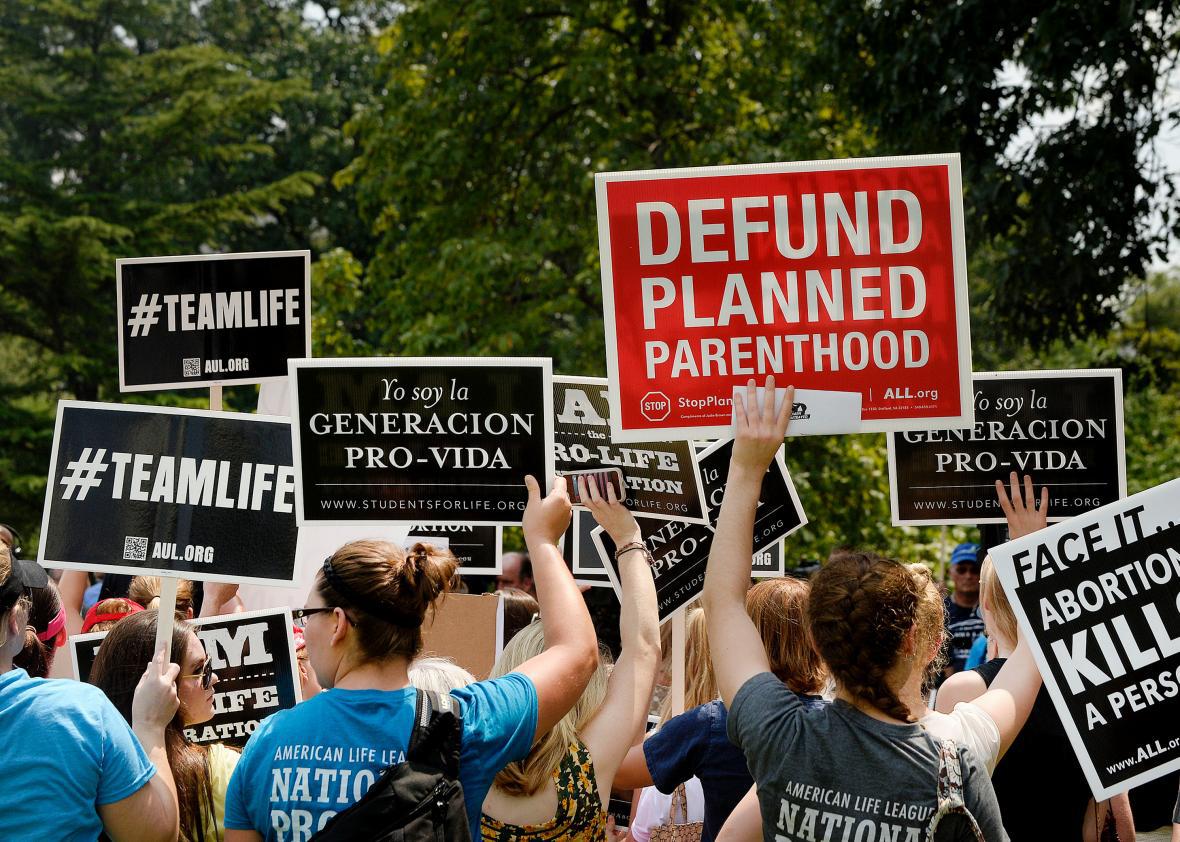In March, Florida’s overwhelmingly Republican legislature passed a tricky new abortion law whose practical purpose was to defund Planned Parenthood. The measure prohibits state funding for reproductive health clinics where abortions are performed—and for clinics that are associated with abortion providers. (Public funding of elective abortion is already illegal.) In effect, the law would shutter women’s health clinics where abortions aren’t even performed, simply because they are owned and operated by Planned Parenthood.
For many of these clinics, Medicaid provides a major source of income, since the program typically covers non-abortion services like birth control and cervical cancer screenings. The Florida law is designed to starve clinics of cash by blocking Medicaid reimbursements. On Tuesday, however, the federal government gently reminded Florida that it definitely can’t do that. Vikki Wachino, director of the Center for Medicaid and CHIP Services within the Centers for Medicare and Medicaid Services (CMS), explained to the state that its abortion measure clearly violates federal law.* Specifically, the funding ban defies the Social Security Act’s “free choice provider” provision, which allows Medicaid beneficiaries to see any qualified provider. As Wachino explained:
This provision limits a state’s authority to establish qualification standards, or take certain actions against a provider, unless those standards or actions are related to the fitness of the provider to perform covered medical services—i.e., its capability to perform the required services in a professionally competent, safe, legal, and ethical manner—or the ability of the provider to appropriately bill for those services. Such reasons may not include a desire to target a provider or set of providers for reasons unrelated to their fitness to perform covered services or the adequacy of their billing practices.
Technically, Florida can request a “Medicaid waiver” from the federal government, giving it permission to bypass the free choice provider rule and restrict funding for women’s health clinic. The odds that the government will grant such a waiver to Florida are roughly zero percent. To compound the legislature’s problems, the Florida Supreme Court blocked a separate anti-abortion law, mandating a 24-hour waiting period, on Friday, just days after CMS’s warning.
In addition to Florida, nine other states have recently passed laws attempting to deprive reproductive health clinics of Medicaid funding. CMS reminded each of them that their abortion extortion plan is illegal. States can still put financial pressure on clinics by cutting other forms of state funding. But with the Medicaid lifeline preserved by federal law, it seems likely that the primary goal of these laws—to destroy Planned Parenthood’s finances, then drive it out of the state altogether—is destined to fail.
*Correction, April 22, 2016: This post originally misstated Vikki Wachino’s position. She is the director of the Center for Medicaid and CHIP Services, not the director of the Centers for Medicare and Medicaid Services. (Return.)
